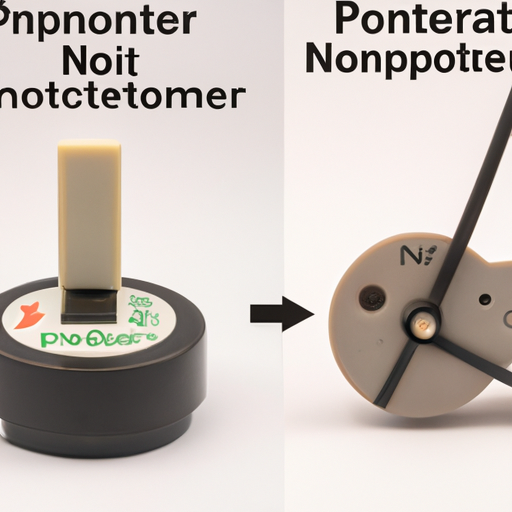

Potentiometers, also known as potmeters or pots, are widely used in various applications across different industries. These versatile devices are essentially variable resistors that allow for precise control of electrical signals. The main application direction of potentiometers can be categorized into three main areas: control, measurement, and signal processing.

In measurement applications, potentiometers are used to measure and monitor various physical quantities, such as temperature, pressure, and position. For example, in temperature sensors, a potentiometer is used to convert the temperature into a corresponding electrical signal that can be read and interpreted by a control system. Potentiometers are also used in position sensors, where they provide feedback on the position of a moving object or component.
Signal processing applications of potentiometers involve the manipulation and conditioning of electrical signals. Potentiometers are used in audio equipment to adjust the tone and balance of sound signals, as well as in filters and amplifiers to control the gain and frequency response. In lighting systems, potentiometers are used to dim or brighten lights, providing users with control over the intensity of the light output.
Potentiometers come in various types and configurations, each suited for specific applications. The most common types include rotary potentiometers, slide potentiometers, and trimmer potentiometers. Rotary potentiometers are used for applications that require continuous adjustment, such as volume control on audio equipment. Slide potentiometers are used in applications where linear adjustment is required, such as in faders on mixing consoles. Trimmer potentiometers are used for fine-tuning and calibration purposes, such as in circuit board assembly and testing.
In addition to their primary applications, potentiometers are also used in specialized applications, such as in robotics, automotive systems, and medical devices. In robotics, potentiometers are used in joint position sensors to provide feedback on the position and orientation of robotic arms and limbs. In automotive systems, potentiometers are used in throttle position sensors, cruise control systems, and HVAC controls. In medical devices, potentiometers are used in patient monitoring equipment, surgical instruments, and prosthetic devices.
Overall, potentiometers play a crucial role in a wide range of applications, providing precise control, measurement, and signal processing capabilities. Their versatility and reliability make them indispensable components in modern electronic systems and devices. As technology continues to advance, the demand for potentiometers is expected to grow, driving further innovation and development in this field.
Potentiometers, also known as potmeters or pots, are widely used in various applications across different industries. These versatile devices are essentially variable resistors that allow for precise control of electrical signals. The main application direction of potentiometers can be categorized into three main areas: control, measurement, and signal processing.

In measurement applications, potentiometers are used to measure and monitor various physical quantities, such as temperature, pressure, and position. For example, in temperature sensors, a potentiometer is used to convert the temperature into a corresponding electrical signal that can be read and interpreted by a control system. Potentiometers are also used in position sensors, where they provide feedback on the position of a moving object or component.
Signal processing applications of potentiometers involve the manipulation and conditioning of electrical signals. Potentiometers are used in audio equipment to adjust the tone and balance of sound signals, as well as in filters and amplifiers to control the gain and frequency response. In lighting systems, potentiometers are used to dim or brighten lights, providing users with control over the intensity of the light output.
Potentiometers come in various types and configurations, each suited for specific applications. The most common types include rotary potentiometers, slide potentiometers, and trimmer potentiometers. Rotary potentiometers are used for applications that require continuous adjustment, such as volume control on audio equipment. Slide potentiometers are used in applications where linear adjustment is required, such as in faders on mixing consoles. Trimmer potentiometers are used for fine-tuning and calibration purposes, such as in circuit board assembly and testing.
In addition to their primary applications, potentiometers are also used in specialized applications, such as in robotics, automotive systems, and medical devices. In robotics, potentiometers are used in joint position sensors to provide feedback on the position and orientation of robotic arms and limbs. In automotive systems, potentiometers are used in throttle position sensors, cruise control systems, and HVAC controls. In medical devices, potentiometers are used in patient monitoring equipment, surgical instruments, and prosthetic devices.
Overall, potentiometers play a crucial role in a wide range of applications, providing precise control, measurement, and signal processing capabilities. Their versatility and reliability make them indispensable components in modern electronic systems and devices. As technology continues to advance, the demand for potentiometers is expected to grow, driving further innovation and development in this field.